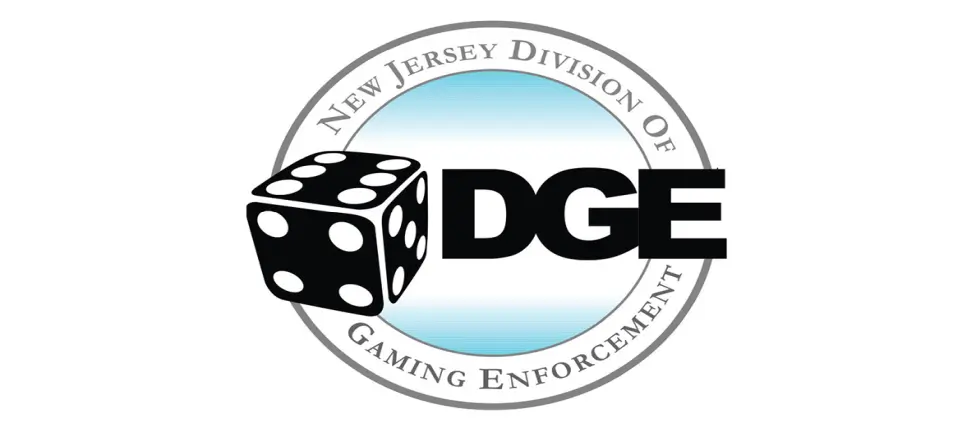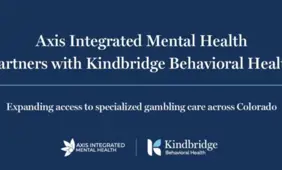NJ Division of Gaming Enforcement Introduces New RG Regulations
The New Jersey Division of Gaming Enforcement (DGE) has introduced new responsible gaming regulations that are now published in the official New Jersey Register. The division announced that it will accept public comments on the proposed measures until Friday, November 14. Once the comment period closes, the rules could become binding for all licensed online casino and sports betting operators across the state.

The new regulations are designed to create uniform standards for when operators must intervene with patrons who may show signs of problem gambling. Currently, each operator is required to maintain a responsible gaming staff, but there is no standardization regarding the specific point at which intervention is necessary. The new rules will change that by establishing clear criteria that all licensees must follow.
Related: New Jersey's Gambling Regulator Wants Casinos to Give Up More User DataJamie McKelvey, Assistant Bureau Chief for Responsible Gaming at the DGE, confirmed the regulations were officially published during an appearance at iDEA Growth's Power Lunch Summit on Player Protection. McKelvey explained that the rules are intended to provide specific definitions of problem gambling behavior and to ensure that players who may be at risk receive appropriate and timely assistance.
According to the text of the rule, the DGE aims to strengthen responsible gaming awareness and enforcement practices statewide. Under the new requirements, every operator will be required to designate a responsible gaming lead who will oversee customer monitoring and review cases where players may be at risk.
The regulations also introduce 12 specific criteria, referred to as points of play, that will trigger an operator's responsibility to flag and investigate a patron.
These include deposit thresholds, unusual account activity, frequent changes to self-exclusion or responsible gaming settings, and sudden increases in time or money spent on gambling platforms.
Some of the criteria include deposits that exceed $10,000 within a 24-hour period, total deposits over $100,000 in a 90-day period, and total account turnover of more than $1 million over 90 days. Players who request multiple cool-off periods in a short span of time, attempt self-exclusion but fail to complete it repeatedly, or cancel withdrawal requests multiple times in a short period will also be flagged.
More Responsible Gambling News
 Responsible Gambling
Responsible Gambling
British Lottery Winner Sentenced Over £288m Counterfeit Drug Operation
Feb 03, 2026 Responsible Gambling
Responsible Gambling
Kindbridge and Axis Launch Integrated Gambling Disorder Care in Colorado
Jan 30, 2026A 3-Step Program for Intervention
Additionally, customers who demonstrate escalating wagering behavior, finish sessions with almost no funds repeatedly, or increase their playtime significantly compared to prior weeks may be considered at risk. Operators and the DGE may also establish additional triggers to identify problem gaming behavior.
Once a player is identified through these criteria, the operator must conduct a due diligence review to determine whether the patron should be classified as at risk. If so, the operator is required to follow a three-phase intervention process.
The first step involves contacting the customer to provide information on available responsible gaming tools. These include deposit limits, cool-off periods, and self-exclusion programs.
The second step requires the operator to have the customer watch a mandatory video tutorial on responsible and problem gaming. The video must be viewed in its entirety before the customer can continue gambling activity. This step is intended to ensure that the patron is informed about the risks of problem gambling and the resources available to help manage it.
The third step requires direct outreach by phone or video. A responsible gaming lead must discuss the patron's behavior with them and highlight all the responsible gaming tools offered.
During this contact, the lead will provide details of a professional counselor specializing in gambling issues and may also share their own contact information so the patron can reach them directly for support. If the customer accepts professional counseling, the operator will be required to cover the associated costs.
If the operator is unable to contact the patron after three attempts, the regulations mandate that the customer's account be temporarily suspended until direct communication takes place. This measure ensures that potentially at-risk players cannot continue to gamble without receiving appropriate intervention and support.
The New Jersey Division of Gaming Enforcement has made clear that the responsibility for enforcement and compliance will rest with licensed operators, and that penalties could follow if obligations are not met.
RELATED TOPICS: Responsible Gambling
Most Read
BETBY Launches Always-On Virtual American Football and Expanded Bet Builder Markets
Feb 04, 2026Must Read
 Interviews
Interviews
Exclusive Interview: Levon Nikoghosyan Shares AffPapa Winning Formula for Successful iGaming Events
Dec 03, 2025 Interviews
Interviews







Review this New Post
Leave a Comment
User Comments
Comments for NJ Division of Gaming Enforcement Introduces New RG Regulations